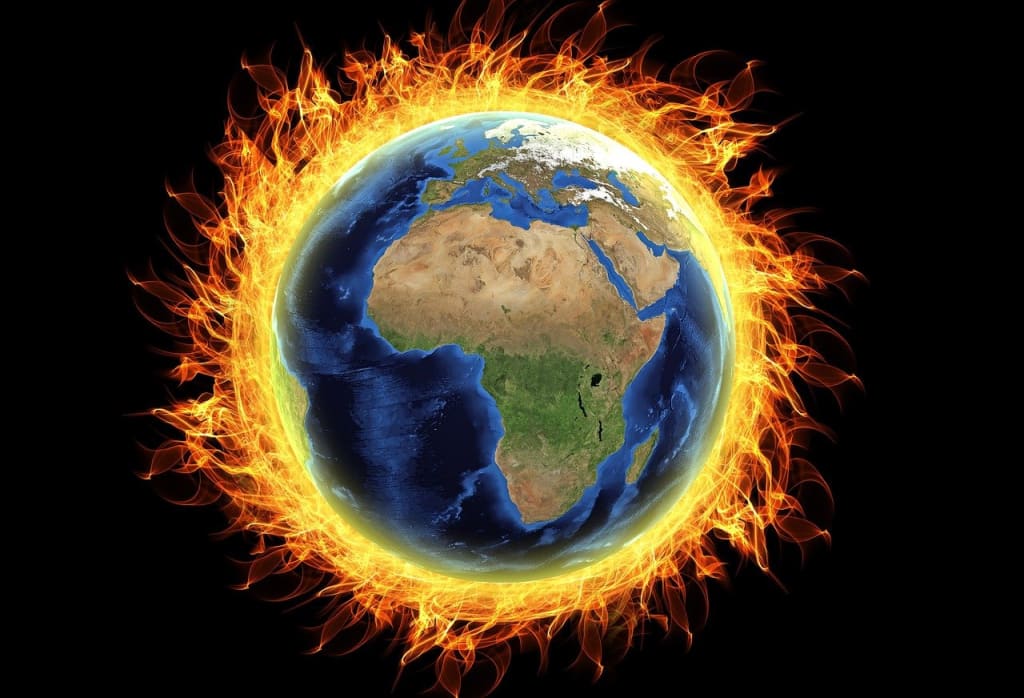
The heat generated by human activities can have various impacts on the environment. Here are some key points based on the search results:
- *Urban Heat Island Effect*:
Urban areas with extensive concrete and asphalt surfaces tend to absorb and retain more heat compared to surrounding rural areas. This phenomenon is known as the Urban Heat Island Effect. The heat absorbed by buildings, roads, and other structures during the day is released slowly at night, leading to higher temperatures in urban areas. This effect can increase energy costs, air pollution levels, and heat-related illnesses.
- *Climate Change*:
Land plays a crucial role in the Earth's climate system. Changes in land use and land cover can impact local and regional climates. Deforestation, for example, can lead to reduced evapotranspiration, which affects the water cycle and can contribute to changes in local and regional climate patterns.
- *Land-Atmosphere Interactions*:
The interaction between land and the atmosphere is an important component of the Earth's climate system. The exchange of heat, moisture, and gases between the land surface and the atmosphere can influence weather patterns, including the formation of clouds, precipitation, and the distribution of heat across different regions.
- *Impact on Weather Events*:
Land surface conditions, such as soil moisture, vegetation cover, and land use, can influence weather events. Changes in land surface properties can affect the formation and intensity of weather systems, such as thunderstorms and heatwaves. For example, dry soil conditions can contribute to the development and persistence of heatwaves.
- *Ecological Impacts*: Changes in land surface temperatures can have significant impacts on ecosystems and biodiversity. Higher temperatures can affect the physiology and behavior of plants and animals, disrupt ecological interactions, and alter habitat suitability for various species.
- *Mitigation and Adaptation*:
Understanding the impacts of land on the environment is crucial for developing strategies to mitigate and adapt to climate change. Efforts to reduce the Urban Heat Island Effect, promote sustainable land use practices, and protect natural ecosystems can help mitigate the negative impacts of land-generated heat on the environment.
Based on the search results, here is some information about high temperatures on Earth:
- The highest recorded air temperature on Earth was 56.7 degrees Celsius (134.1 degrees Fahrenheit) in Furnace Creek Ranch, Death Valley, California, in 1913. This is considered the highest temperature ever recorded on Earth, as recognized by the World Meteorological Organization (WMO).
- Death Valley, located in California, holds the record for the highest air temperature ever recorded on Earth, with a reading of 134 degrees Fahrenheit (56.7 degrees Celsius).
- In July 2023, Earth experienced an unofficial record high average temperature of 62.9 degrees Fahrenheit (17.18 degrees Celsius), according to unofficial metrics. However, it is important to note that this measurement is not officially recognized by the WMO.
- Rising global temperatures due to climate change are leading to increased occurrences of extreme heat events and record-breaking temperatures. These high temperatures have significant implications for ecosystems, human health, and the environment.
- The increase in global temperatures is attributed to human activities, primarily the burning of fossil fuels and the release of greenhouse gases into the atmosphere.
- The effects of high temperatures include heatwaves, heat-related illnesses, droughts, wildfires, and impacts on agriculture and water resources.
In summary ,Earth has experienced record-breaking high temperatures, with the highest recorded air temperature being 56.7 degrees Celsius (134.1 degrees Fahrenheit) in Death Valley, California. Rising global temperatures due to human-induced climate change are contributing to increased occurrences of extreme heat events. These high temperatures have significant impacts on various aspects of the environment and human well-being.
The heat generated by land can have various impacts on the environment, including the Urban Heat Island Effect, changes in local and regional climates, impacts on weather events, ecological disruptions, and the need for mitigation and adaptation strategies. Understanding these impacts is essential for addressing climate change and promoting sustainable land management practices.
About the Creator
Enjoyed the story? Support the Creator.
Subscribe for free to receive all their stories in your feed. You could also pledge your support or give them a one-off tip, letting them know you appreciate their work.





Comments
There are no comments for this story
Be the first to respond and start the conversation.